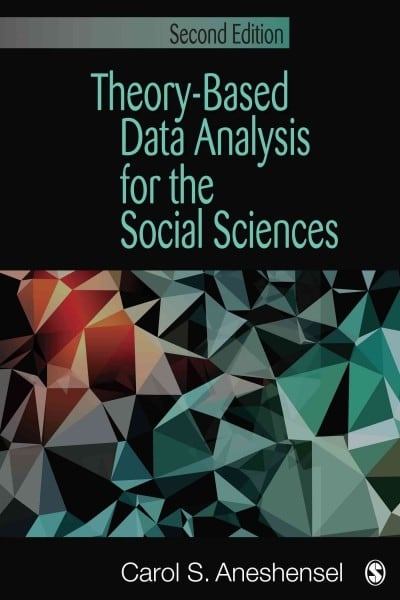Question
What is the difference between temperament and personality ? How do the two relate to one another? Although both terms refer to individual differences in
What is the difference betweentemperamentandpersonality? How do the two relate to one another? Although both terms refer to individual differences in the ways that people interact with the world (indeed differences between the two terms often get murky!), the two differ in important ways.
Temperament refers specifically to characteristicspresent in early life. As such, it is assumed to reflect differences ininherited biology. Temperament is a term used to capture "how" infants engage in the world (i.e.,styleof expression) rather than "what" or "why" they do what they do. For example, infants often differ in their chronic moods (moody vs. cheerful), activity level (high vs. low), and emotional reactivity.
In contrast, personality refers specifically to characteristics observed in later life (childhood and adulthood). As such, it is assumed to reflect early temperament (and associated genetic differences), as well as differencesacquired through experience. Personality is a term used to capture not only "how" a person interacts with the world, but also "what" or "why" people do what they do. For example, children and adults differ in their personal goals, values and beliefs.
To illustrate basic dimensions of temperament, and how they affect behavior and relate to adult personality, we'll watch a video "What makes us tick?"
The video on temperament and heredity, which introduces the biological level, is now available.
The video is divided into two clips, each approximately 15 or so minutes. It makes sense to watch them in order:
What makes us click (part 1): What makes us tick (part 1) Links to an external site. https://www.youtube.com/watch?v=mv0P1WGhy1E
What makes us click (part 2): What makes us tick (pt 2) Links to an external site. https://www.youtube.com/watch?v=QSu77p8Zrgw
Certainly! Here's a reformatted version of your questions to enhance clarity and readability:
---
**Question 1 (1.25 pts) - The Roots of Personality: Nature and Nurture** 1. What is the nature vs. nurture debate? What are the basic ideas of each position?
---
**Question 2 (1.25 pts) - Temperament** 1. Why is it informative to study newborns (vs. older children)? 2. What are the two primary dimensions on which newborns differ? 3. Are these dimensions independent or correlated? 4. How (procedure) and when (age) are these dimensions assessed? 5. To what extent are individual differences in these dimensions predictive of later life? 6. Do these dimensions of temperament resemble any of the Big-5 traits used to assess adult personality? (Although not directly discussed in the video)
---
**Question 3 (1.25 pts) - Cross-cultural Differences** 1. What did Lewis et al. find regarding cross-cultural differences? What groups were involved? What age groups? 2. What are possible explanations for the results? Provide an explanation from both the nature and nurture perspectives.
---
**Question 4 (1.25 pts) - Anger/Frustration** 1. How is anger/frustration studied in infants? 2. What are three distinctive patterns with which infants respond to frustrating situations? What is the relative prevalence of each? 3. Explain the causes for the most dominant response pattern from both the nature and nurture perspectives.
---
**Question 5 (1.25 pts) - Shyness in Infants and Children** 1. How is shyness in infants and children studied behaviorally? 2. What behavioral responses and psychological states distinguish shy children from outgoing children? 3. What are a few biological markers of shyness? 4. What role does parenting style play in shyness? 5. Explain the causes of shyness (vs. outgoingness) from both a nature and nurture perspective.
---
**Question 6 (1.25 pts) - Shyness in Rhesus Monkeys** 1. Why study Rhesus monkeys? 2. In what ways are Rhesus monkeys similar to humans? 3. How is shyness studied in Rhesus monkeys? 4. What behavioral responses distinguish shy from outgoing monkeys? 5. What physiological responses distinguish shy vs. outgoing monkeys? 6. How do foster parenting studies inform the study of shyness? 7. Based on research with Rhesus monkeys, provide an explanation of the causes of shyness (vs. outgoingness) from both the nature and nurture perspectives.
---
**Question 7 (1.25 pts) - Thrill-Seeking Behavior** 1. What is a 'Big T' personality and 'Small T' personality? 2. What are the biological correlates of thrill-seeking behavior? 3. What is the arousal theory of thrill-seeking behavior? 4. What is the MAO theory of thrill-seeking behavior? 5. What role might the environment play in shaping thrill-seeking behaviors?
---
**Question 8 (1.25 pts) - Identical Twins: Role of Genetics and Environment** 1. What is the genetic similarity between identical twins? 2. What are some similarities and differences between identical twins, as illustrated in the case study? 3. Describe how genes may interact with environments to jointly contribute to expressions of personality?
---
Step by Step Solution
There are 3 Steps involved in it
Step: 1

Get Instant Access to Expert-Tailored Solutions
See step-by-step solutions with expert insights and AI powered tools for academic success
Step: 2

Step: 3

Ace Your Homework with AI
Get the answers you need in no time with our AI-driven, step-by-step assistance
Get Started


